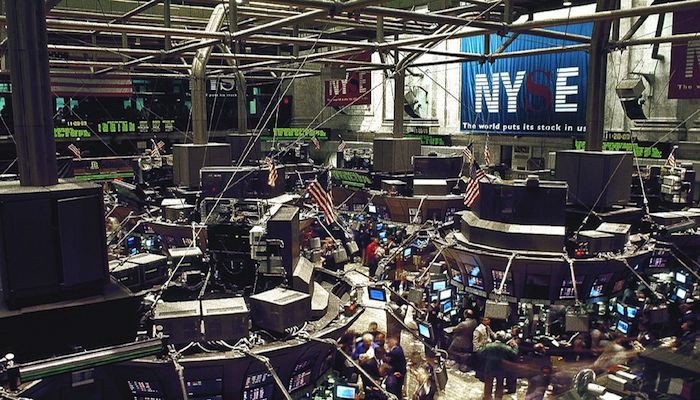Stock Trading Tech Trends To Watch

Remember the good, ol’ days when trading at the stock market meant a huge crowd of noisy people? They’d all be yelling, waving slips of paper in the air, and making hand signs akin to those in a baseball game. Today, technology has pretty much relegated those days to stock market history.
Where all a trader used to need were a pen, order-taking pads and a somewhat pushy personality, trading is now all about apps, algorithms and automation. Investors and investment firms alike would do well to keep up with the trends, as the hot, new download of today could very well be outdated tomorrow.
Trending Trading Tech
Spiking serves up some trading tech trends that investophiles might want to follow, as compiled from CNBC, the New York Stock Exchange and the New York Times.
- Digital Investor Avatars. In a couple of decades or so, full-time personal investment advisors won’t be just for the super rich, anymore. Even the retail investor on the street will have one — in the form of artificial intelligence advising the investor’s digital avatar. The avatar will even be able to look for investment opportunities according to the investor’s own specifications.
- Online “Stock Matchmaking”. Investors could soon be “matched with their perfect stocks” in much the same way an online dating service works. Digital avatars might have a role to play in this trend.
- IPO Roadshows on YouTube. Small companies or start-ups will be promoting their IPOs using YouTube videos that might be vouched for by a co-sponsor like NASDAQ.
- Digital Risk Management Tools. The NYSE’s Risk Management Tools (RMT) are designed to complement a firm’s own internal tools. RMT uses a web interface that enables executed exposure tracking and real-time adjustment. The tools alert users whenever a firm-defined limit is neared or breached, and soon, will even auto-block or auto-cancel orders as necessary.
- Automated News Scanning and Analysis. Now, investors don’t even have to keep tabs on the news, because the computer can do this for them. Computers are not only able to speed-read the news as well as Twitter, they can even be programmed to interpret the information, and then make trades accordingly.
Where Does Trading Tech Leave Humans?
Once jam-packed, tumultuous trading floors are now all but empty thanks to off-site servers doing the actual trading. The servers’ activity flashes across flat screens which have, for the most part, replaced humans at the stock exchange. This is but a reflection of how technology has come to supplant humans in stock markets around the globe.
That said, is there any room left for humans at all in a world ruled by millisecond-fast speeds and yottabytes of data? MarketWatch, quoting a representative from the New York Stock Exchange, says there is.
- Human trading floor specialists give investors a “sense of security and accountability” that computers cannot.
- Humans are also able to catch errors that computers will process blindly and automatically because they are pre-programmed to — as in the case of an investor who mistakenly taps in 1,000,000 instead of 10,000 into his smart phone when buying shares.
- Marketplace likewise points out that on top of “putting a human face” to computerised, automated trading, humans have the necessary intuition for assessing supply and demand. This is why human traders are still present at stock exchanges, even though, in the United States, for instance, computers carry out about 79% of all trades.
It also goes without saying that all those algorithms still need people to program them. Citadel Securities, for instance, which handles more shares than the NYSE, has about 20 programmers that create the algorithms that decide how each trading order is carried out. The programmers constantly have to adjust the algorithms to “teach” the computers how to better understand investor behaviour.
High Tech Trading Games
Meanwhile, the investors themselves (or wannabe ones) continue to gravitate toward trading tech, and nowhere is this more evident than in trading games. Mirror, which singled out the popular trading games below, suggests that these games could even encourage more people to start investing in the stock market.
- Bux, where gamers receive 1,000 virtual “bux” to trade shares of actual companies such as Amazon and Facebook, features gameplay based on these companies’ performance in real life.
- Kapitall gives players get rewards for learning to invest, also with virtual money. Users also get to show off their portfolio to friends, as well as a chance to win real money in a monthly competition.
- Stock Wars: Virtual Investing is for more serious players, being chock-full of analyses in addition to the creation and management of a virtual portfolio, and the placement of real-time orders.
- Stock Market Simulator Plus gives players 50,000 virtual dollars to take over the market, if they can. To give it a touch of realism, the “market” even closes at the end of every trading day.
- Investr comes with a news feed and social forums on stocks on top of the virtual betting going on in its stock market.
Apps as the Apex of Trading Tech
Probably the most common incarnation of trading technology, stock market apps perform a wide variety of functions — either to help make trading easier for investors, or to make it easier for would-be investors to learn how to trade.
Stock market apps enable users to
- practise investing with virtual money before risking real money
- transact and track actual trades
- keep tabs on the latest stock market news
- keep track of the latest stock spiking and share prices
- keep an eye on the economy in general market trends and in particular
- get in-depth information on a specific stock
- calculate gains and losses
- learn the meanings of stock market terms
MarketWatch says the main reason people use so many apps so often is because apps are the easiest way to access information. It went to add that apps help people become better investors and traders because so much of this information is given in real time.
Spiking provides up-to-the-minute updates straight from the Singapore Exchange. With the goal of helping SGX investors make better-informed buying and selling decisions, Spiking alerts users to the trading activities of more than 8,000 sophisticated investors as they happen. Discover how Spiking can help make you a better investor by visiting the Spiking app homepage today.

